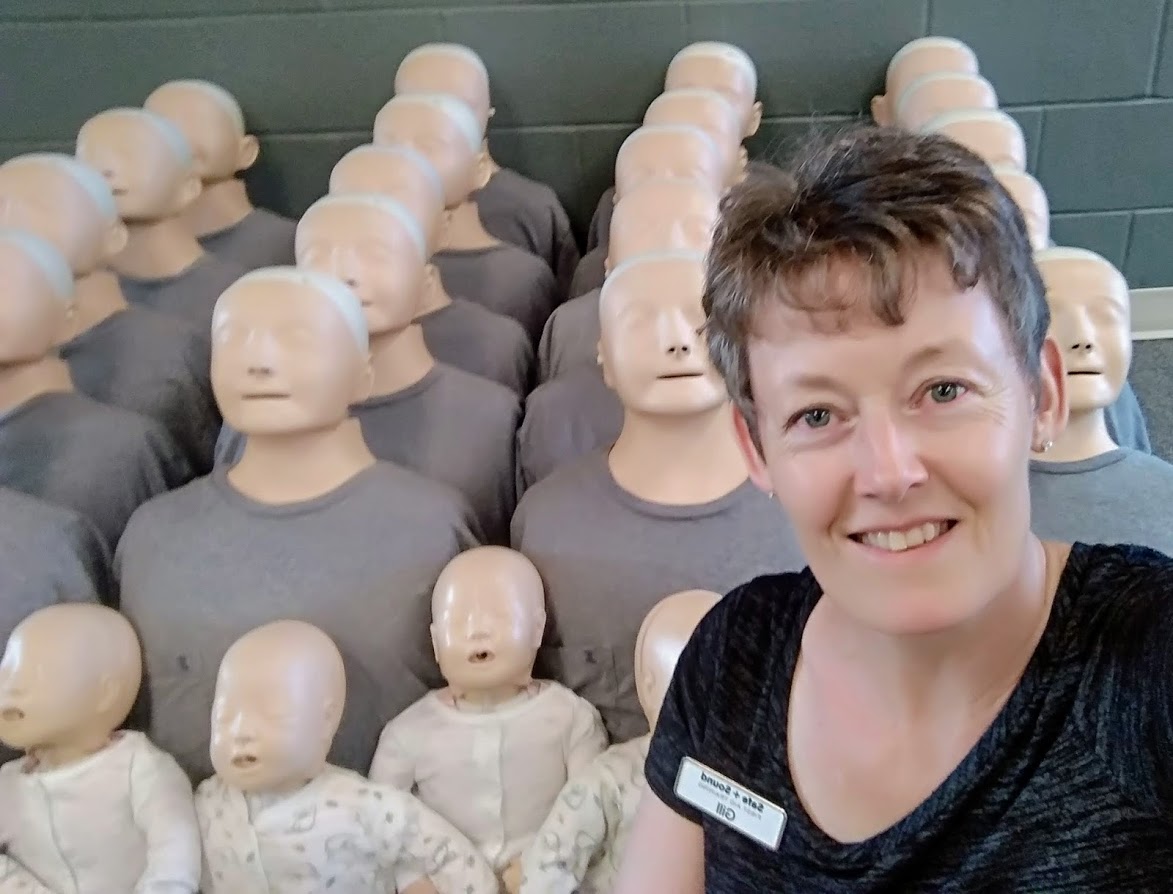Red Cross recently launched the Basic Life Support Program. Development of this course was driven by industry audiences and the need for a clear distinction from public (or lay) CPR courses. Health care provider audiences require a professional, skills-driven resuscitation course that recognizes requisite knowledge.
BLS – Frequently asked questions
Q. What is Basic Life Support?
A. Basic Life Support (BLS) is the recognition of, and initial intervention or treatment given by pre-hospital or in-facility responders to, a patient suffering from cardiac arrest or respiratory arrest.
Q. Is BLS just a different name for CPR HCP (Health Care Provider), or are HCP and BLS completely different?
A. BLS is a new course that is vastly different from HCP, from the target audience to the curriculum and content. BLS is focused on high performance resuscitation and professional skills and does not provide prevention education and address other first aid components as was the case in our HCP curriculum.
Q. Why is Red Cross sunsetting HCP?
A. BLS training supersedes CPR HCP training. The introduction of BLS means CPR HCP is no longer needed – audiences who previously requested the CPR HCP Course will either take CPR C or BLS training depending on the skills needed.
Q: Is Red Cross Basic Life Support (BLS) a nationally recognized program?
A: Yes, the BLS certification is recognized across Canada.
Q: Who is the BLS course designed for?
A: This course is designed for healthcare providers and trained first responders who provide care to patients in a wide variety of in-facility and prehospital settings or by those that require BLS certification and CPR training to enter into a healthcare-related training program.
Q: What do students learn on a BLS course?
A: The primary goal of BLS is to give professional responders the fundamental skills needed to sustain life with CPR/Rescue Breathing and restore an effective rhythm with use of an AED. Follow this link and click View Course Details for more info and list of topics.
Q: Who is the Basic Life Support (BLS) Recertification course for?
A: The Basic Life Support (BLS) Renewal course is a fast-paced course that allows the experienced BLS provider (those who are confident in their BLS skills through regular use in their work in the ED, CCU, ICU on code team, or paramedics and first responders) the opportunity to demonstrate knowledge through written and skills assessment in a concentrated program. Successful completion of this two hour 15 minute course (approximate time) allows students to renew their BLS course completion card.
Q: How long is a BLS certificate good for?
A: A Red Cross BLS certificate is good for 1 year.
Q. Why is BLS only a one-year certification?
A. One year is the industry standard for BLS due to the high skill competency required. Resuscitation skills deteriorate over time and professional responders working in a team environment must know all positions and the skills within those positions. In a cardiac arrest event, any team member may be assigned to any role and must be competent to fulfill their duties.
Q. How long is the BLS Course?
A. BLS on its own is four hours of instructional time, with one additional hour for each of Airway Management and Oxygen Therapy certifications. The focused course allows for a shorter time frame and more flexible scheduling options.
Q. Is there a BLS Recertification Course? If so, how long is it?
A. Yes, there is a BLS Recertification Course and it is two hours of instructional time. If the participant has Airway Management and/or Oxygen Therapy certification(s) as well, they may recertify those at the same time. Additional time is needed to complete the Airway Management and/or Oxygen Therapy certification(s).
Q. Is there a minimum age for BLS participants?
A. There is no minimum age requirement. Participants must be able to successfully demonstrate skill competency.
BLS Training for Private Groups in Metro Vancouver
Book a private group BLS class for your team at your location or ours or register your staff on one of our public BLS classes in Coquitlam.
Questions? Email info@learnfirstaid.ca or call 604-945-7277









